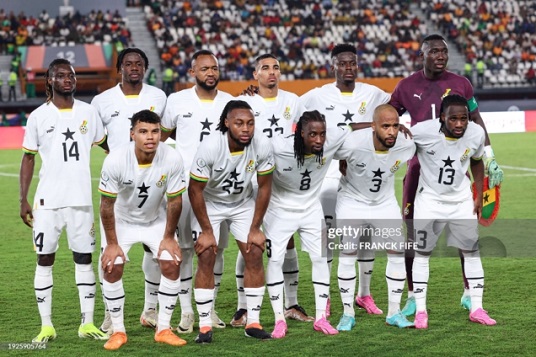Ghanaian football is at a crossroads with the recent struggles of the Black Stars and the unimpressive performances by local clubs in African inter-club competitions, signalling a crisis that demands immediate intervention.
As an investor in the sport, president of Division One League side Skyy FC, and with over 25 years of experience in local football and my current role as Chairman of the MTN FA Cup Organising Committee, coupled with my diverse experience as a Ghanaian and a member of the National Development Planning Commission, I feel a sense of duty to address the developmental challenges faced by Ghanaian football.
The present state of Ghana's football landscape necessitates a thorough examination of past decisions and a commitment to transformative strategies.
While the knee-jerk reaction of sacking coaching staff after poor performances by national teams persists,it is evident that a more
comprehensive approach is required to reverse the fortunes of our national teams.
Similarly, the need to revamp local competitions and restructure clubs to harness the vast talent pool scattered
across our communities require urgent attention.
Fundamental questions which need answering: How can we breathe new life into our national teams? How can we reinvigorate local competitions and overhaul our clubs to nurture talent effectively?
We must address how we got to this sorry state of Ghanaian football.
Unsustainable business model
Addressing the roots of Ghana’s football decline is crucial.
A significant turning point occurred 32 years ago when the government of Ghana, spearheaded by the Ministry of Youth and Sports
led by the late Enoch Teye Mensah, with the active support of the Ghana Football Association (GFA) during the tenure of Nana Sam Brew Butler as its management board chairman,decided that football clubs in top two tier leagues must become registered business entities.
Unfortunately, this upgrade to 'Professional Clubs' happened without the necessary support in human capital and financial resources.
Consequently, clubs resorted to a business model centred around premature sales of emerging talents for survival.
This transformation rather laid the foundation for the challenges we are faced with today, the unsustainable business model Ghanaian clubs have been operating for the last 30 years,which has compelled most clubs to operate like typical football academies breeding talents for quick sale the next season.
This unregulated mass sale of young talents has not only weakened team competitiveness but also robbed local leagues of their star attractions who draw fans to matches, leading to near-empty stadiums which subsequently demotivate players, match officials and a deterrent to potential sponsors and advertisers from investing in local football.
The financial strain has left Premier League and Division One League clubs in a poor state.
Integrity issues
Furthermore, transparency and integrity issues plague player selection and coaching appointments for national teams are becoming a preserve of elected football leaders and others with proximity to power further compounding the challenges facing the sport. In recent times, rumours of illegal betting by players and club officials, as well as match-fixing with the connivance of referees, have cast a shadow over the entire system.
Touring Europe by national team coaches or FA officials to entice players of Ghanaian descent to make themselves available for the national teams has not worked well as these Ghanaians without local league experience often lack the passion, commitment and desire to die for the flag of Ghana.
To address these challenges, I propose the establishment of the Ghana Sports Development Fund administered by a board of trustees and drawing resources from the National Lotteries Authority, Minerals Commission, and Petroleum Commission.
An annual fundraising awards dinner event, attended by the Head of State and other influential figures in society such as our traditional leaders, will encourage corporate donations to the fund.
Sports Fund, the game changer
This initiative aims to inject $400,000 and $200,000 per season into the 18 Ghana Premier League clubs and 48 Division One League clubs, respectively. It will enable clubs to retain top talents as they would earn attractive salaries and elevate the standard of the game and its attractiveness to fans and corporate sponsors.
Such an initiative would ensure significant growth in the incomes of home-based players with the top talents getting a fair opportunity to play and excel in the national teams, which will raise their market value significantly to attract millions of dollars into the local football economy.
A percentage of this revenue can be channelled into the Sports Fund to become self-sustaining by the 10th year.
Drawing from my experience as the District Chief Executive of Wassa East District between 2017-2021, I advocate for the reactivation of Regional Sports Committees.
These committees, working with regional ministers, can engage corporate institutions within their regions to invest in local sports,
adopting a bottom-up approach to sports development.
With strategic reforms and collaborative efforts, Ghanaian football can undoubtedly rise to prominence once again.
By Wilson Arthur





